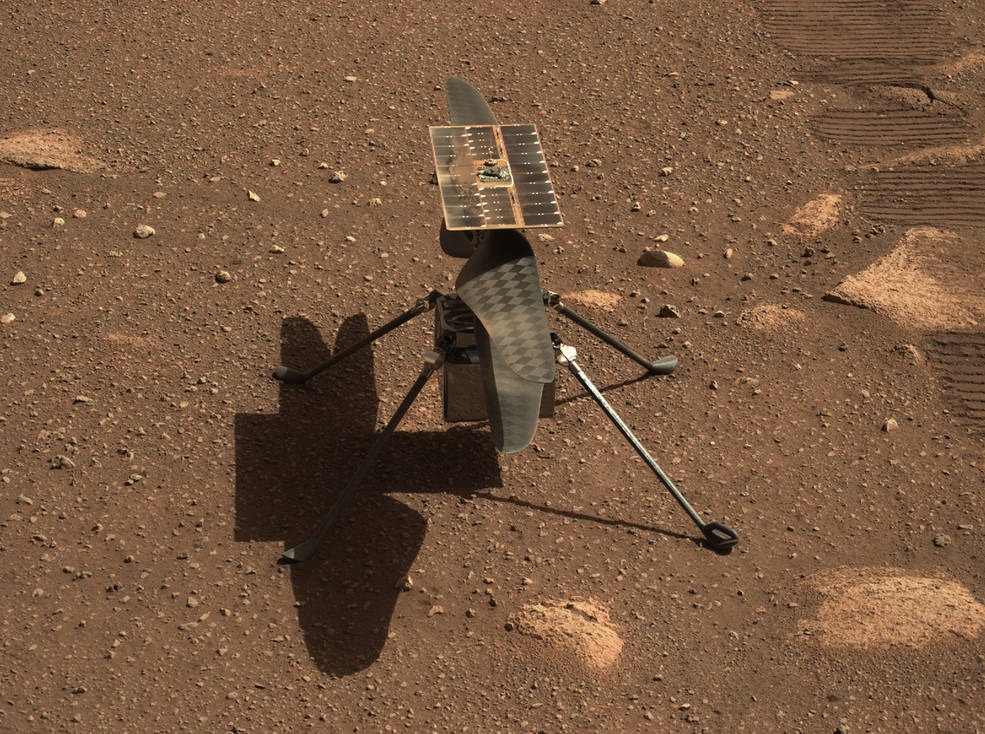The Ingenuity helicopter made its first flight in 2023. In its course, it overcame a distance of 110 meters above the Martian surface.
First drone on Mars
Ingenuity arrived on Mars with the Perseverance rover. It made its first flight in April 2021. Since the device is a technological demonstrator, its nominal program was designed for only 30 days, during which the drone had to make five test flights.

However, Ingenuity exceeded the wildest expectations of its designers. Thanks to the more than successful results of the demonstration flights and the absence of significant technical problems, NASA decided to extend the mission period. Over the next year and a half, Ingenuity carried out more than three dozen more flights, during which it overcame a distance exceeding 7.5 km, and also survived a dust storm. Currently, the drone is used both for additional engineering tests and for conducting aerial reconnaissance for the needs of Perseverance.
38th flight of Ingenuity
The first flight of Ingenuity in 2023 took place on January 4. Its goal was to move the spacecraft to a more convenient platform. The flight lasted 74.3 seconds. During this time, the device overcame a distance of 110 meters. The maximum height was 10 meters. The last flight was already the 38th for Ingenuity.
Ingenuity is flying into 2023! #MarsHelicopter completed Flight 38 this week, traveling 363 feet (110 meters) above the Martian surface for 74.26 seconds at a max. altitude of 33 feet (10 meters) to reposition itself. https://t.co/1CXIWdYIAQ pic.twitter.com/vnon4GySXT
— NASA JPL (@NASAJPL) January 6, 2023
It is worth noting that it was the more than successful results of Ingenuity operation that became the main reason why NASA decided to include two drones in the Mars Sample Return mission. They will be used to select capsules with samples of Martian soil left by the Perseverance rover. In addition, NASA specialists are currently engaged in the design of the Dragonfly aircraft. It will be landed on Titan and will study its atmosphere, surface and hydrocarbon seas.
Follow us on Twitter to get the most interesting space news in time
https://twitter.com/ust_magazine

